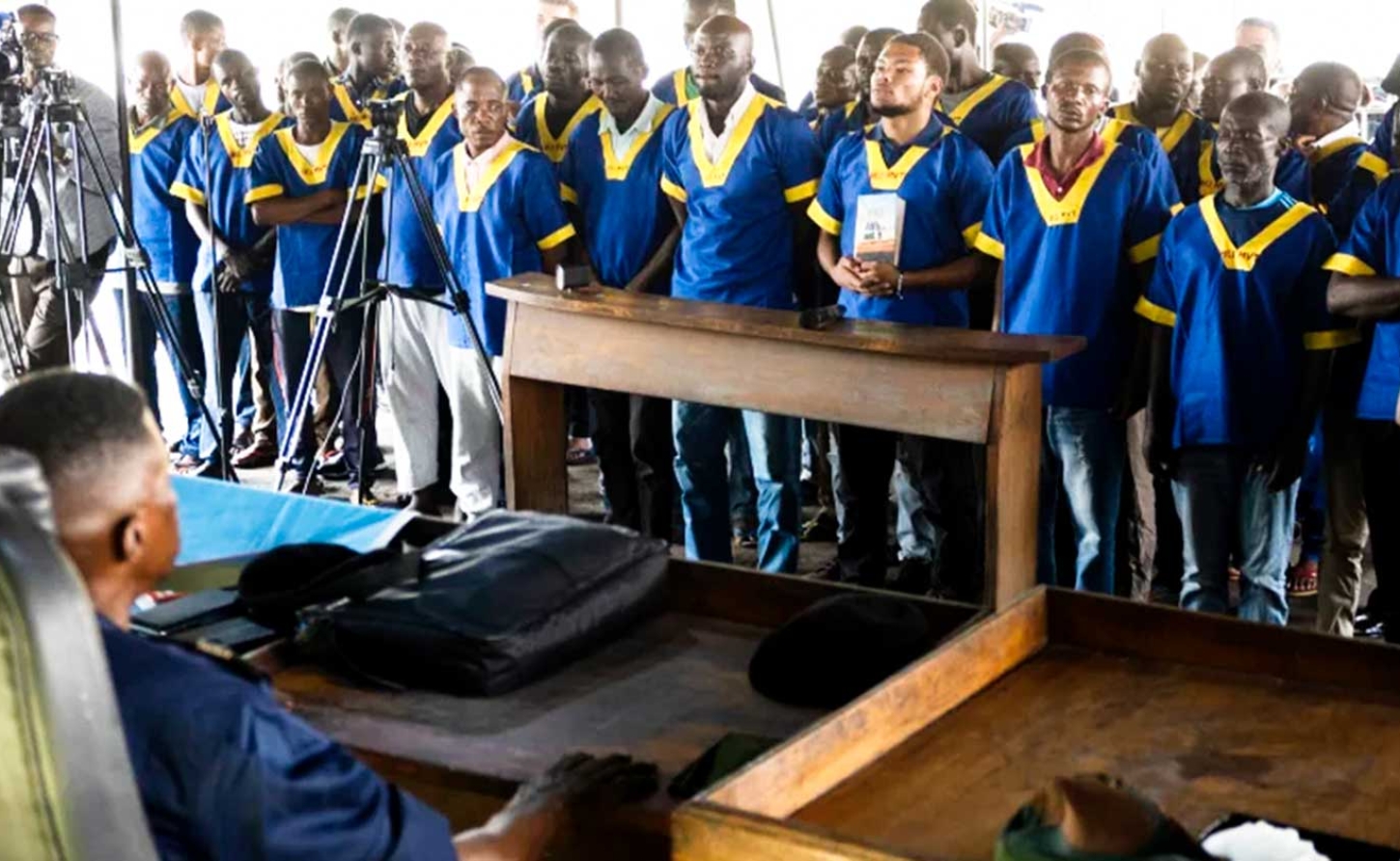AFRICA | 37 DRC Coup Plotters Including Three Americans get the Death sentence

KINSHASA, Democratic Republic of Congo — In a dramatic climax to a tale of misguided ambition and botched rebellion, a military tribunal in the Democratic Republic of Congo (DRC) has sentenced 37 individuals to death for their roles in a failed coup attempt.
Among those facing the grim verdict are three U.S. citizens, caught in a web of intrigue that spans continents and raises questions about the nature of justice in a nation grappling with its turbulent past.
The sentence was delivered with military precision by Major Freddy Ehume, who presided over the tribunal. "The court pronounces the strongest sentence: the death penalty," he declared, his words echoing through the makeshift courtroom—a khaki-green tent erected in the courtyard of Kinshasa's Ndolo military prison.
This pronouncement brings to a close a three-month legal saga that began on a fateful night in May. The plot's mastermind, Christian Malanga—a Congolese political exile and long-time U.S. resident—led a ragtag group of conspirators in a ham-fisted attempt to topple President Felix Tshisekedi's government.
Their ill-fated escapade began with an assault on the residence of Vital Kamerhe, a key ally of President Tshisekedi, before setting their sights on a presidential complex in the heart of Kinshasa.
In a moment of surreal bravado, Malanga live-streamed the invasion, unfurling flags and leading anti-government chants in a spectacle that would prove to be short-lived.
The Congolese military swiftly crushed the uprising, with Malanga paying the ultimate price for his audacious gambit. In the chaotic aftermath, at least six lives were snuffed out, including those of innocent bystanders caught in the crossfire of ambition.
Among those swept up in the dragnet were three Americans: Marcel Malanga, the 22-year-old son of the coup's ill-fated leader; Tyler Thompson, a 21-year-old from Utah whose family maintained he was on vacation; and Benjamin Zalman-Polun, a 36-year-old Maryland native. Their capture on the banks of the Congo River, as they attempted to flee the scene of their folly, was marked by brutality—a stark preview of the harsh treatment that awaited them.
The trial that followed was a theater of the absurd, plagued by allegations of torture, linguistic confusion, and a palpable sense of predetermined guilt. Defendants, including the Americans, spoke of coercion and threats, painting a picture of unwilling participants caught in a madman's scheme.
"He had not said anything about any of this happening until that night," Thompson told the court, his words dripping with a mixture of fear and bewilderment. "To my knowledge we were here on vacation to meet him, so I did not see him as a threat. The only thing he told me is that I must do everything as he says or else I will die."
Yet, these pleas fell on deaf ears. The tribunal, unmoved by claims of duress or protestations of innocence, found all 37 defendants guilty on all counts. Even Jean-Jacques Wondo, a Belgian national absent from the attack itself, found himself condemned for being the alleged "intellectual author" of the plot—a charge he vehemently denies.
As the dust settles on this chapter of Congolese history, questions linger about the nature of justice in a nation still grappling with the shadows of its past. Defense lawyers cry foul, with one anonymously lamenting, "This was superficial, the court didn't delve into the heart of the case. They had a decision in their pocket."
Sylva Mbikayi, counsel for Marcel Malanga, didn't mince words: "This is a shameful decision, stained by a lot of bad faith on the part of the tribunal." His vow to appeal offers a glimmer of hope for the condemned, but in a country where the specter of capital punishment has recently been revived, the future remains uncertain for these would-be revolutionaries turned cautionary tales.
As the world watches, the fate of 37 souls hangs in the balance, their story a stark reminder of the high stakes in the game of power and the often blurry line between justice and retribution in the heart of Africa.
-30-
